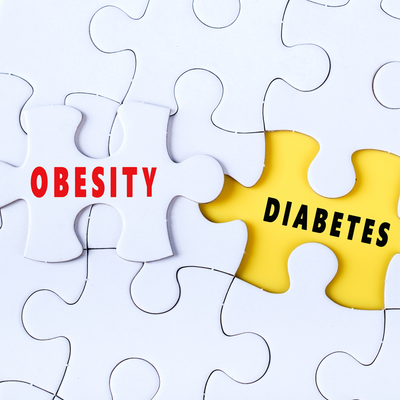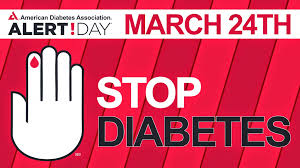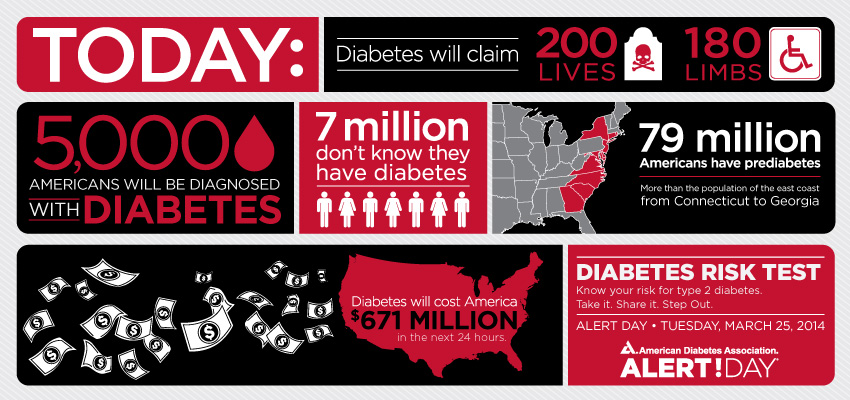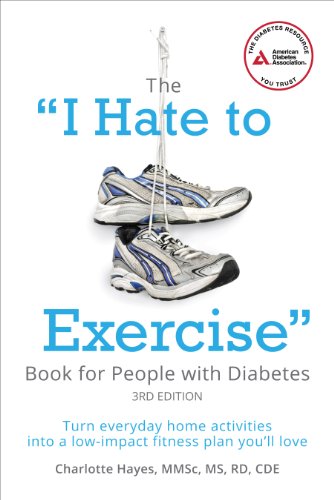Let’s Act NOW to Slow the Type 2 Diabetes Pandemic

Consider these staggering stats that capture the worldwide prediabetes and diabetes epidemic:
Should You Follow a Prediabetes Diet Plan?
 I answer the question Should You Follow a Prediabetes Diet Plan? in a Splenda Living Blog.
I answer the question Should You Follow a Prediabetes Diet Plan? in a Splenda Living Blog.
Diabetes Alert Day 2015 - At Risk? Take Action NOW!
 Tuesday March 24, 2015 is the American Diabetes Association's (ADA) annual Diabetes Alert Day. This day kicks-off a four-week campaign which runs through April 21, 2015.
Tuesday March 24, 2015 is the American Diabetes Association's (ADA) annual Diabetes Alert Day. This day kicks-off a four-week campaign which runs through April 21, 2015.
Diabetes Alert Day is THE day each year that ADA sets aside to alert the public to the Diabetes Risk Test. If the results of your risk test indicates you'r at risk, take the next step to know for sure. The goal is for you or your loved one to TAKE ACTION to get diagnosed and care for prediabetes or type 2 diabetes.
I wholeheartedly support this effort. The time for action is now!
The statistics about the prediabetes and type 2 diabetes epidemics are alarming enough to sound the alarm 365 days a year. They show the dent diabetes is making and will continue to make on our health care system, let alone peoples’ lives and longevity!
According to CDC's Diabetes Facts:
- 29 million children and adults are living with diabetes. (This includes about 6 million people who currently have diabetes but have not yet been diagnosed.) Based on the current U.S. population, about 314 million people - roughly 9.5%.
- 86 million people are estimated to have prediabetes placing them at a much greater risk for developing type 2 diabetes. CDC estimates that’s about 35% of all adults over the age of 20 and 51% of adults over 65 years of age (yes, you read that correctly!). Research from CDC shows, unfortunately, that barely 11% of these people know they have it.
- One in three American adults will have diabetes in 2050.
Why Should Diabetes Advocates Enter This Food Fight?
What’s wrong with these two conflicting realities? And, why should diabetes advocates care (and take action)?
Reality 1: A food fight is raging on Capitol Hill because some members of the House of Representatives want to put the brakes on several requirements for school foods and meals which went into effect with the implementation of the Healthy and Hunger Free Kids Act of 2010 (12/13/10). (Read more background below.).
Reality 2: The Centers for Disease Control and Prevention (CDC) recently announced updated figures for diabetes in the U.S. Top line: there’s been yet another uptick. Now more than 29 million American are estimated to have diabetes, up from 26 million in 2010. Another 86 million adults – more than one in three U.S. adults – have prediabetes (for more on prediabetes). Fifteen to 30 percent of people with prediabetes will develop type 2 within five years. To stats on the related childhood obesity: one out of every three American children is overweight or obese. Many children, who eat half their calories at school, consume a diet too high in saturated fat, sodium, and sugars, and too low in fruits, vegetables, and whole grains.
Diabetes Alert Day 2014 - Help Me Sound the Alarm Louder
 Tuesday March 25, 2014 is the American Diabetes Association's Diabetes Alert Day. Though the statistics about the prediabetes and type 2 diabetes epidemics are alarming enough to sound the alarm 365 days a year, Diabetes Alert Day is THE day each year that the American Diabetes Association sets aside to encourage people to TAKE the Risk Test and if need be, TAKE ACTION to diagnose and care for prediabetes or type 2 diabetes NOW. I fully support this effort!
Tuesday March 25, 2014 is the American Diabetes Association's Diabetes Alert Day. Though the statistics about the prediabetes and type 2 diabetes epidemics are alarming enough to sound the alarm 365 days a year, Diabetes Alert Day is THE day each year that the American Diabetes Association sets aside to encourage people to TAKE the Risk Test and if need be, TAKE ACTION to diagnose and care for prediabetes or type 2 diabetes NOW. I fully support this effort!
Yes, the stats are downright scary and clearly show the dent diabetes is and will continue to make in our health care system, let alone peoples’ individual lives and livelihood!
Book Review: I Hate to Exercise Book for People with Diabetes
This is one in a series of book reviews. You may find these books beneficial if you: manage prediabetes or diabetes, follow a diabetes meal plan and/or try to eat healthy to live well. These book reviews also appear on amazon.com and these books can be found in my amazon a-store. This book is also available from American Diabetes Association's book store. Please check out these books and consider a purchase.
 Let’s face it: we know exercise is important, especially in managing diabetes. But sometimes it’s just hard to put exercise into practice nearly every day (as you’ve been told it should be done). Plenty of people have gotten the exercise bug and it’s ingrained in their daily lives. Other people, and you may be one, just plain hate to exercise.
Let’s face it: we know exercise is important, especially in managing diabetes. But sometimes it’s just hard to put exercise into practice nearly every day (as you’ve been told it should be done). Plenty of people have gotten the exercise bug and it’s ingrained in their daily lives. Other people, and you may be one, just plain hate to exercise.
In the 3rd edition of The “I Hate to Exercise” Book for People with Diabetes, authored by registered dietitian, certified diabetes educator and exercise specialist, Charlotte Hayes, MMSc, MS, RD, CDE, exercise detesters get an ADA published and approved resource to turn to for sneaky ways to move more.

